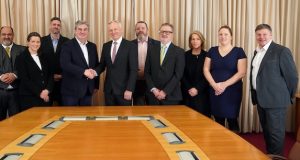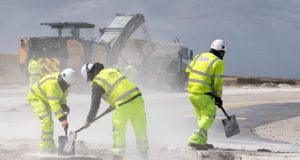WIN PORTAL
As further evidence of this collaborative approach he cites the introduction of Wates Innovation Network (WIN) portal, developed by Wates Sustainable Technology Services as a free-to-use portal where clients can access a database of green tech and services that help them on their way to net zero.
These give users access to approximately 90 innovation partners, many of which are start-ups and emerging tech innovators and offers businesses one place to seek out green solutions, products and services. It can be accessed at www.wates.co.uk/win-portal.
Says Collett: “The portal is a group initiative but has huge potential for the FM sector. Here we’re completely agnostic, so we’re not promoting one service over another. Our job is to act like a menu in a restaurant so users can pick what they need. Whether it is carbon reduction products, water, waste or remote monitoring, it’s the aggregate of them altogether which make a huge impact.
“The benefits to us and our customers are massive, in fact, WIN contributed to us being awarded Best Sustainability Supplier of the Year by HMRC after transforming their ESG strategy and creating savings of over £43,000 per unit per year.”
ENVIRONMENTAL SOCIAL GOVERNANCE (ESG)
As the development of the WIN portal suggests, Wates Group takes its sustainability responsibility seriously and expects to be carbon neutral by 2025 for scope 1 and 2. It’s also keen for clients to set their own ESG strategies and is gaining a reputation in the market for helping clients become greener by ensuring their carbon capture strategies are really clear.
Making a positive societal contribution is hugely important to Collett. His division is investing in a social value agenda with a range of initiatives in partnership with clients for community initiatives. This is an area he believes the FM sector has been late to embrace and could still do much better.
When it comes to governance and compliance says Collett: “Making sure we keep our customers safe and legal so they can sleep at night is the bedrock of our services. we deliver a level of granularity which I’d dare to say is quite unique in the industry.
“While most organisations will report and monitor processes that lead up to compliance we do something rather differently. In order to reassure ourselves that we’re delivering and maintaining a high standard and it’s all legally compliant – any statutory work we do on behalf of the client is then independently verified and assessed by an independent authorised person to validate that the work we’ve done as a business meets that criteria.
“Whether someone missed something on the documentation, remedial action needs slightly more attention or a technical report doesn’t quite make sense, we’ve got checks and balances that recognise an FMs duty to demonstrate effective compliance. This is part of the service and a minimum standard that honours our responsibility and the obligation that we have, which I think our clients would expect.
“There are some areas of the FM sector which treats services as a commodity purchase and Wates does not want to compete in that marketplace. For organisations that take their estates management, and their compliance seriously, we have got belts and braces services for them.”
INNOVATIONS
One of the other clear advantages of a whole lifecycle approach is the ability to tap into the data provided during the construction process.
Says Collett: “Because our group is involved at Build stage, during the fabrication of the plant & during fit out we’re able to utilise these important data points and BIM [building information modelling] is a really good example of this.”
This brings an understanding he explains on how to manage and operate buildings through BIM software – as well as utilising digital twins to monitor facilities and even test different scenarios.
He advises however that: “The pace with which technology generally is moving within FM is in some instances being marketed ahead of what customers can so far achieve. Yes, it’s going to be transformative, but we must move at the pace of our customer base, how they plan and what they need to achieve.
“This begins with getting basic data gathering right, understanding assets and their maturity and what it all means. Currently there’s quite a bit to do to get data to a level of accuracy where AI and other forms of tech and tools can start to help. In short, I think the narrative is ahead of the capability but it’s a journey we all need to be on and our job is to help clients take the steps they need to take to onboard the future benefits.”





